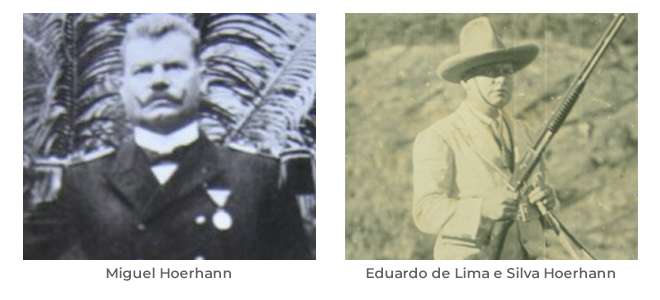About Us
We operate across the following business segments:
- Elite Gun Club: Offering world-class facilities for firearm enthusiasts.
- Training School: Providing comprehensive, expert-led training programs.
- Event Hosting: Organizing premier events tailored to our community.
- Federal Firearms Licensing (FFL): Ensuring compliance and excellence in firearm-related transactions.
- Professional Consulting: Delivering specialized advice to individuals and organizations.
- Private Security / Private Investigation: Offering discreet, top-tier protection services.
At .38 America, we are committed to fostering a community-focused, service-oriented, and ethical environment. Our mission is to equip individuals with the knowledge, skills, and confidence they need to safeguard what matters most.

Our History
In the late 18th century, the United States declared its independence, igniting a revolution that championed individual human rights. The adoption of the U.S. Constitution and its Bill of Rights cemented these principles, setting a global standard for personal freedom.
Meanwhile, across the Atlantic, Brazil was stirring with its own aspirations for liberty. Inspired by these American ideals, Prince Regent Dom Pedro I introduced a constitution in Brazil that championed similar rights, fueling the nation’s struggle for independence from Portuguese rule.
Amid this era of transformation, a family emerged whose legacy became inseparable from Brazil’s fight for sovereignty. It began with Ferdinand Brandon of Normandy, an ancestor whose lineage shaped Brazil’s history. His descendant, José Joaquim de Lima e Silva, was awarded the prestigious Order of Avis for his contributions to Brazil’s cause. José’s son, Francisco de Lima e Silva, served as Regent of Brazil under Dom Pedro II, guiding the nation through turbulent times.

Francisco’s son, Luis Alves de Lima e Silva, the Duke of Caxias, became Brazil’s most celebrated general and is still honored as the Patron of the Brazilian Army. His military triumphs were legendary, but the family’s impact extended further. His uncle, João Manuel de Lima e Silva, led forces in the Farroupilha Revolution, while Francisco and his relatives, including José Joaquim de Lima e Silva II, Viscount of Magé, were instrumental in securing Brazil’s independence, including liberating Bahia, the last province to break free from Portuguese rule.
This legacy of fighting for freedom persisted across generations. In 1926, Eduardo de Lima e Silva Hoerhann, a descendant, secured human rights protections for the Laklãnõ/Xokleng natives, ensuring their recognition and safety.

In 1992, Eduardo’s grandson, Tim Omar de Lima e Silva, founded the .38 Firearms School, dedicated to teaching firearm safety and the link between individual rights and freedoms. Under his leadership, this movement flourished, with hundreds of instructors and thousands of students across Brazil learning to assert their rights and uphold justice.
However, as Brazil faced growing challenges to personal freedoms, Tim’s son, Tony Eduardo de Lima e Silva Hoerhann, chose to continue this legacy in the United States—the birthplace of the ideals his family holds dear.
Early in his career, Tony gained international prominence as an instructor, training law enforcement, special forces, personal security teams, and civilians in shooting, jiu-jitsu-based weapons retention, and combatives. Yet his mission extended beyond technical training. Tony envisioned a space where Americans could understand, exercise, and protect their Second Amendment rights with integrity and responsibility.
This vision materialized as .38 America—a sanctuary for firearms training and a movement dedicated to fostering a culture of liberty and justice. Built upon his family’s legacy, Tony has created an organization that not only offers world-class instruction but also instills in its members a shared commitment to uphold the principles of the U.S. Bill of Rights.
.38 America represents the highest level of firearms training, surrounded by a culture rooted in personal integrity. Membership is selective, ensuring a community unified by a commitment to protecting human rights and fostering a ripple effect of freedom that can benefit all of humanity.
Through education, unity, and dedication, Tony and the members of .38 America strive to create a world where human rights, personal responsibility, and individual freedoms are universally recognized and celebrated. Their story—steeped in perseverance, legacy, and an unwavering commitment to liberty—reminds us that the fight for freedom is ongoing and essential.
.38 America calls upon every member to contribute to this noble cause, echoing the timeless truth: freedom must always be defended and cherished.

The .38 Eagle
The Harpy Eagle — also revered as the Royal Hawk — is a neotropical apex predator, native to the vast expanse of Brazil. As an adult, this formidable bird reigns supreme in the skies, embodying mastery through speed, stealth, and surgical precision.
In our emblem, the Eagle grasps in its talons the sword of Duque de Caxias — a legendary General of the Brazilian Empire. Known for his role in the War of Independence (1823) and his leadership in numerous 19th-century campaigns, Caxias never lost a single battle. He was a symbol of discipline, honor, and unyielding strength.
The spirit of .38 is a direct descendant of this legacy. Our lineage draws power from Caxias’ warrior ethos — rooted in courage, strategy, and moral conduct. Like the Eagle, we strike with purpose. Like Caxias, we do not retreat.

